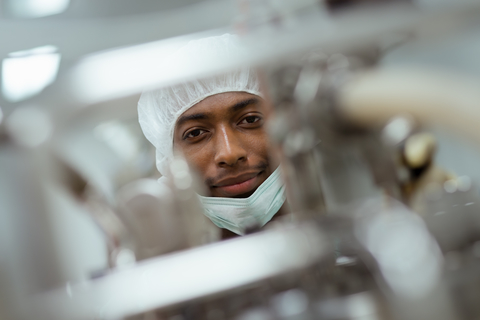Welsh universities secure EU funding for the diagnosis and treatment of life threatening diseases

The National Research Network in Advanced Engineering and Materials (NRN AEM), an engineering network set up as part of the Welsh Government’s Science for Wales initiative, has been a significant support in aiding scientists to secure EU investments into Welsh universities (Business News Wales, 2017).
Two projects funded as part of the NRN AEM have gained recent success securing £1,090,000 through Horizon 2020.
Professor Owen Guy, Director of the Centre for Nanotechnology in Swansea University, heads one of the two projects. He said “This grant represents a unique opportunity to link with leading European research groups and industry partners, to develop diagnostic technology related to Alzheimer’s disease. The Marie Curie Training Network programme will also deliver a generation of 13 highly-skilled, creative and entrepreneurial Fellows across the network, setting them on a path to successful careers in academia or industry…
“[The grant] has enabled us to develop a platform technology which can be taken forward for a range of sensor applications. The network grant will take our research to the next level, ultimately benefiting industry and society as the sensor technology developed feeds into commercial products.
“Our NRN research has provided the foundation for our involvement in this prestigious project. The NRN AEM has developed an outstanding PhD researcher, Ryan Bigham, whose exciting work on graphene sensor devices has pioneered some of the critical technology which will be taken forward by the Marie Curie partnership.”
As one of the eleven partner institutions in a €3.5m Horizon 2020 Marie Curie Training Network led by Plymouth University, a fund of £470,000 is granted for Wales-based research at Swansea University. Research focuses on the development of healthcare technology to enable early diagnosis, with present work focusing on the early findings of Alzheimer’s disease. Securing funding such as this is crucial in developing the diagnosis and treatment of such diseases and with 850,000 people currently affected by Alzheimer’s in the UK alone and with figures set to rise to one million by 2025. This fundamental research is crucial to future benefits that will be brought to both science and society in terms of supporting the development of healthcare technology.
For scientists within universities being part of a network such as the NRN AEM is proving a vital backbone to funding their research and gains of grant applications. This pan-Wales network, led by Swansea University, in conjunction with Cardiff and Bangor University and industry lead TWI Ltd, aims to promote research excellence across a wide spectrum of engineering challenges in Wales. The network is the right platform to ensure Welsh scientists and their respective researches are on the forefront of the research environment worldwide.
Dr Cristiano Palego, of Bangor University, heads the other NRN AEM project. He is collaborating with the Universities of Limoges and Padova, as well as fellow Bangor academics and Creo Medical to secure a total of €4m in EU funding. £705,050 in funding for Bangor University will allow innovative developments, in Cristiano Palego’s field of medical engineering, with the investment in high tech equipment used to create and translate future cancer treatments.
Cristiano Palego said “I would hope this can be a door opener for future opportunities. Myself, my School and ultimately Wales are likely to benefit in terms of the potential to attract talented researchers and increase competitiveness. It will allow me to establish my own bioelectric lab both in terms of equipment and expertise, which will be quite unique in Wales.
“The NRN AEM has been very supportive, notably by funding some consultancy service, which has definitely helped with this success. Moreover the NRN has set the conditions for me to reach out to international partners. The NRN AEM support allowed me to get some preliminary testing done; making the case for enticing a new partner into the consortium.”
With Cristiano Palego’s research focusing on advancements in medical devices to aide doctors in detecting pathogens and malignant cells through non-invasive means, identifying niche areas such as this are significant in pushing engineering research forward and securing those sought after funds in to Wales. However with the current success rate of these grants standing at 4% it is not an easy path to achieving such funding. Collaboration and expertise a network such as the NRN AEM is proving to be a positive link between academics and fund providers in securing grants to further research.
The NRN AEM funds projects across a wide range of topics from fundamental science to manufacturing processes and product development in areas such as medical microsystems, energy systems and smart materials, the NRN AEM aims to keep targeting competitive investment, such as Horizon 2020, to aid the support of Welsh infrastructure in the hope of putting Wales at the forefront of engineering innovation.
This article was updated on July 27th 2018 with a new source article because the original one was no longer available.








